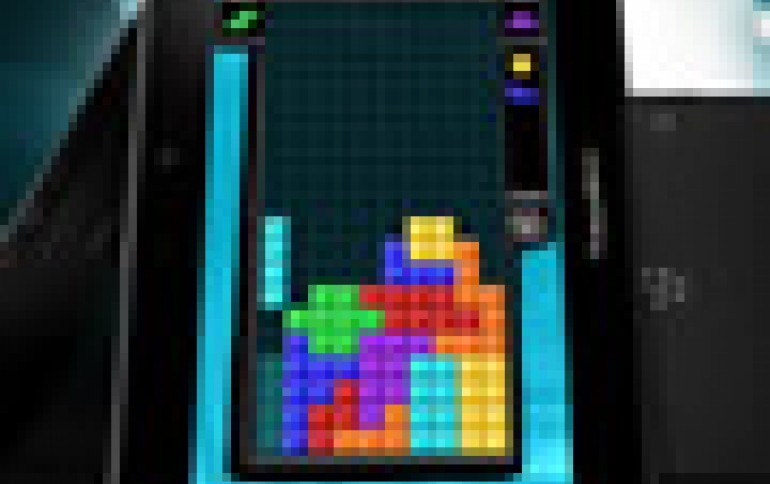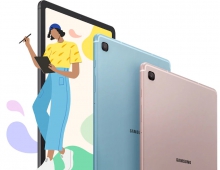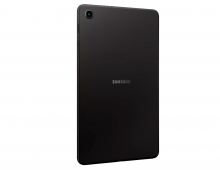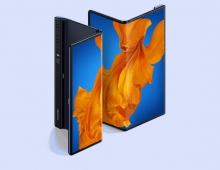
RIM's PlayBook To Support Android Apps
Developers wanting to bring their new and existing apps to the BlackBerry PlayBook tablet will soon have additional tools and options to enhance and expand their commercial opportunities.
Research In Motion (RIM) last week announced plans to expand the application ecosystem for the BlackBerry PlayBook. The BlackBerry PlayBook is scheduled to launch in the U.S. and Canada on April 19.
RIM will launch two optional "app players" that provide an application run-time environment for BlackBerry Java apps and Android v2.3 apps. These new app players will allow users to download BlackBerry Java apps and Android apps from BlackBerry App World and run them on their BlackBerry PlayBook.
In addition, RIM said that it would shortly release the native SDK for the BlackBerry PlayBook enabling C/C++ application development on the BlackBerry Tablet OS. For game-specific developers, RIM is also announced that it has gained support from two game development tooling companies, allowing developers to use the cross-platform game engines from Ideaworks Labs and Unity Technologies to bring their games to the BlackBerry PlayBook.
Developers currently building for the BlackBerry or Android platforms will be able to port their apps to run on the BlackBerry Tablet OS thanks to a high degree of API compatibility. The new optional app players will be available for download from BlackBerry App World and will be placed in a secure "sandbox" on the BlackBerry PlayBook where the BlackBerry Java or Android apps can be run.
Developers will repackage, code sign and submit their BlackBerry Java and Android apps to BlackBerry App World. Once approved, the apps will be distributed through BlackBerry App World. Users will be able to download both the app players and the BlackBerry Java and Android apps from BlackBerry App World.
The BlackBerry PlayBook and BlackBerry Tablet OS are built on the QNX Neutrino microkernel architecture with a 1GHz dual core processor and an OpenGL solution, which allows RIM to make this broad platform support possible.
The BlackBerry Tablet OS already supports a platform with support for Web development standard HTML5, through the BlackBerry WebWorks SDK for Tablet OS, and Adobe AIR, through the BlackBerry Tablet OS SDK for Adobe AIR. The BlackBerry Tablet OS is built from the ground up to run WebKit and Adobe Flash as well.
RIM also announced that the BlackBerry Tablet OS Native Development Kit (NDK), which is currently in limited alpha release, will go into open Beta by this summer and be demonstrated at BlackBerry World. The BlackBerry Tablet OS NDK will allow developers to build multi-threaded, native C/C++ applications with standard GNU toolchains. Developers can create advanced 2D and 3D applications and special effects by leveraging programmable shaders available in hardware-accelerated OpenGL ES 2.0.
Other features of the BlackBerry Tablet OS NDK will allow developers to:
- Take advantage of the QNX POSIX library support and C/C++ compliance for quickapplication porting and for creating native extensions for both BlackBerry and Android applications
- Integrate device events like gesture swipes and touch screen inputs
- Integrate the BlackBerry Tablet OS environment into existing code management and build systems using industry standard Eclipse CDT (C/C++ Development Tools)
- Leverage work done in standard C/C++ to make it easier to bring applications to the BlackBerry Tablet OS
- Find and fix bugs quickly with provided debug and analysis tools
The new app players for the BlackBerry PlayBook are expected to be available from BlackBerry App World this summer.
RIM will launch two optional "app players" that provide an application run-time environment for BlackBerry Java apps and Android v2.3 apps. These new app players will allow users to download BlackBerry Java apps and Android apps from BlackBerry App World and run them on their BlackBerry PlayBook.
In addition, RIM said that it would shortly release the native SDK for the BlackBerry PlayBook enabling C/C++ application development on the BlackBerry Tablet OS. For game-specific developers, RIM is also announced that it has gained support from two game development tooling companies, allowing developers to use the cross-platform game engines from Ideaworks Labs and Unity Technologies to bring their games to the BlackBerry PlayBook.
Developers currently building for the BlackBerry or Android platforms will be able to port their apps to run on the BlackBerry Tablet OS thanks to a high degree of API compatibility. The new optional app players will be available for download from BlackBerry App World and will be placed in a secure "sandbox" on the BlackBerry PlayBook where the BlackBerry Java or Android apps can be run.
Developers will repackage, code sign and submit their BlackBerry Java and Android apps to BlackBerry App World. Once approved, the apps will be distributed through BlackBerry App World. Users will be able to download both the app players and the BlackBerry Java and Android apps from BlackBerry App World.
The BlackBerry PlayBook and BlackBerry Tablet OS are built on the QNX Neutrino microkernel architecture with a 1GHz dual core processor and an OpenGL solution, which allows RIM to make this broad platform support possible.
The BlackBerry Tablet OS already supports a platform with support for Web development standard HTML5, through the BlackBerry WebWorks SDK for Tablet OS, and Adobe AIR, through the BlackBerry Tablet OS SDK for Adobe AIR. The BlackBerry Tablet OS is built from the ground up to run WebKit and Adobe Flash as well.
RIM also announced that the BlackBerry Tablet OS Native Development Kit (NDK), which is currently in limited alpha release, will go into open Beta by this summer and be demonstrated at BlackBerry World. The BlackBerry Tablet OS NDK will allow developers to build multi-threaded, native C/C++ applications with standard GNU toolchains. Developers can create advanced 2D and 3D applications and special effects by leveraging programmable shaders available in hardware-accelerated OpenGL ES 2.0.
Other features of the BlackBerry Tablet OS NDK will allow developers to:
- Take advantage of the QNX POSIX library support and C/C++ compliance for quickapplication porting and for creating native extensions for both BlackBerry and Android applications
- Integrate device events like gesture swipes and touch screen inputs
- Integrate the BlackBerry Tablet OS environment into existing code management and build systems using industry standard Eclipse CDT (C/C++ Development Tools)
- Leverage work done in standard C/C++ to make it easier to bring applications to the BlackBerry Tablet OS
- Find and fix bugs quickly with provided debug and analysis tools
The new app players for the BlackBerry PlayBook are expected to be available from BlackBerry App World this summer.





















